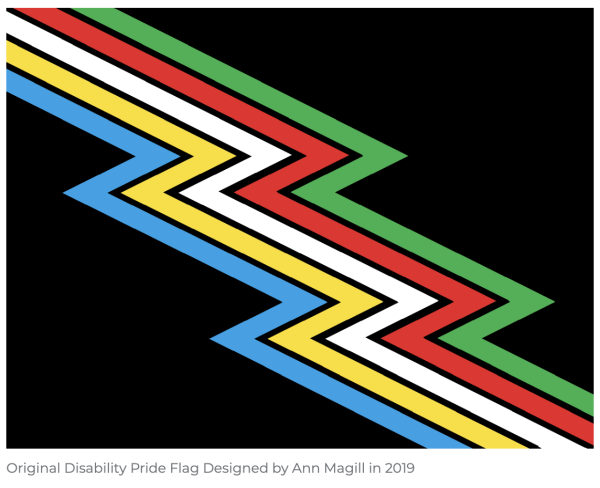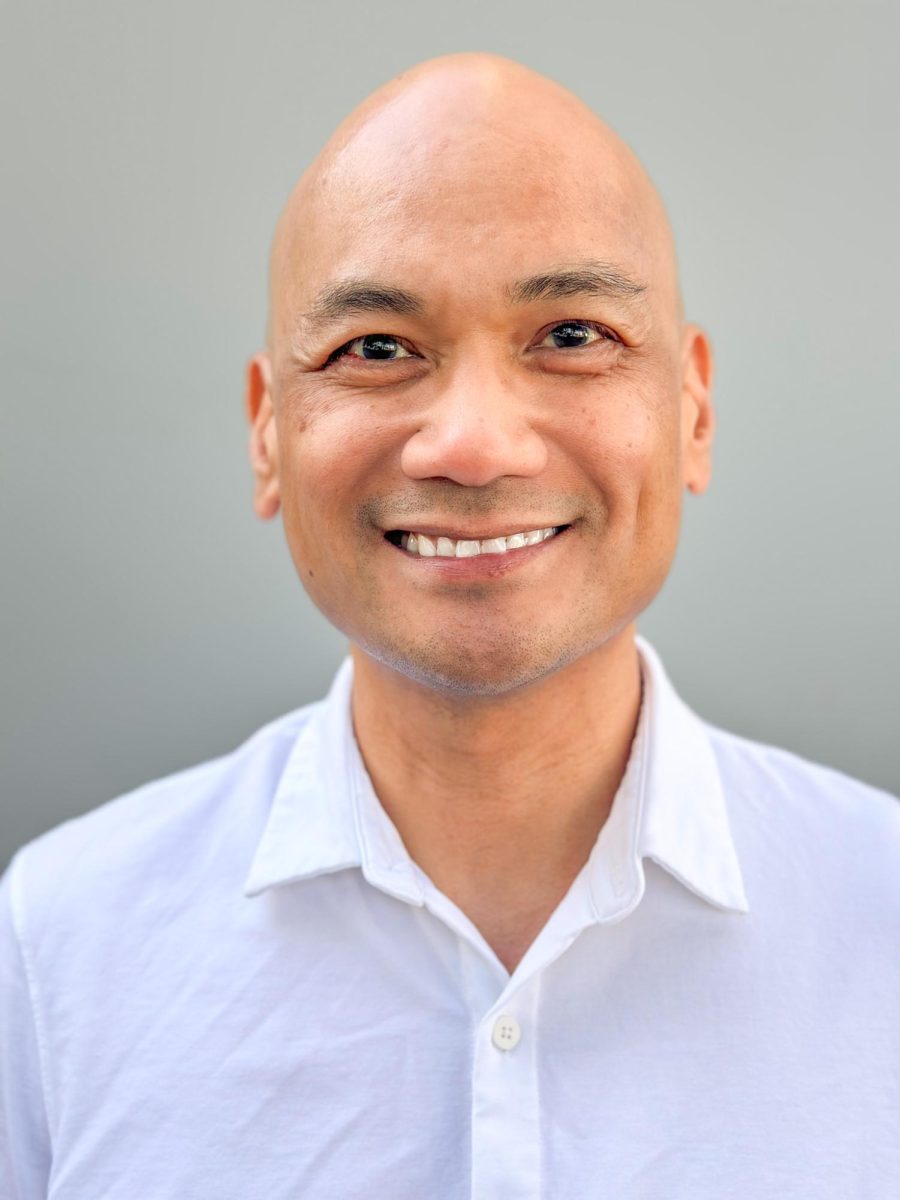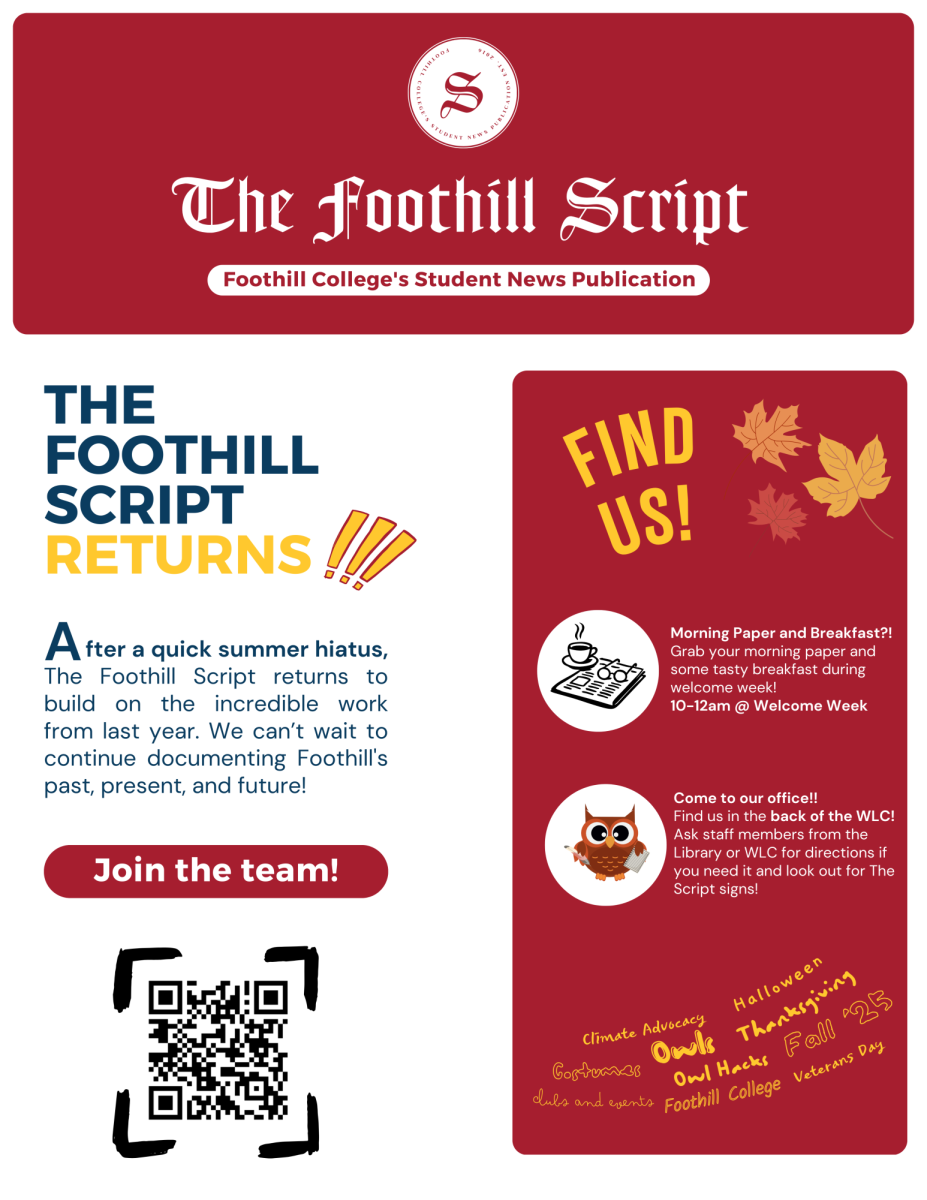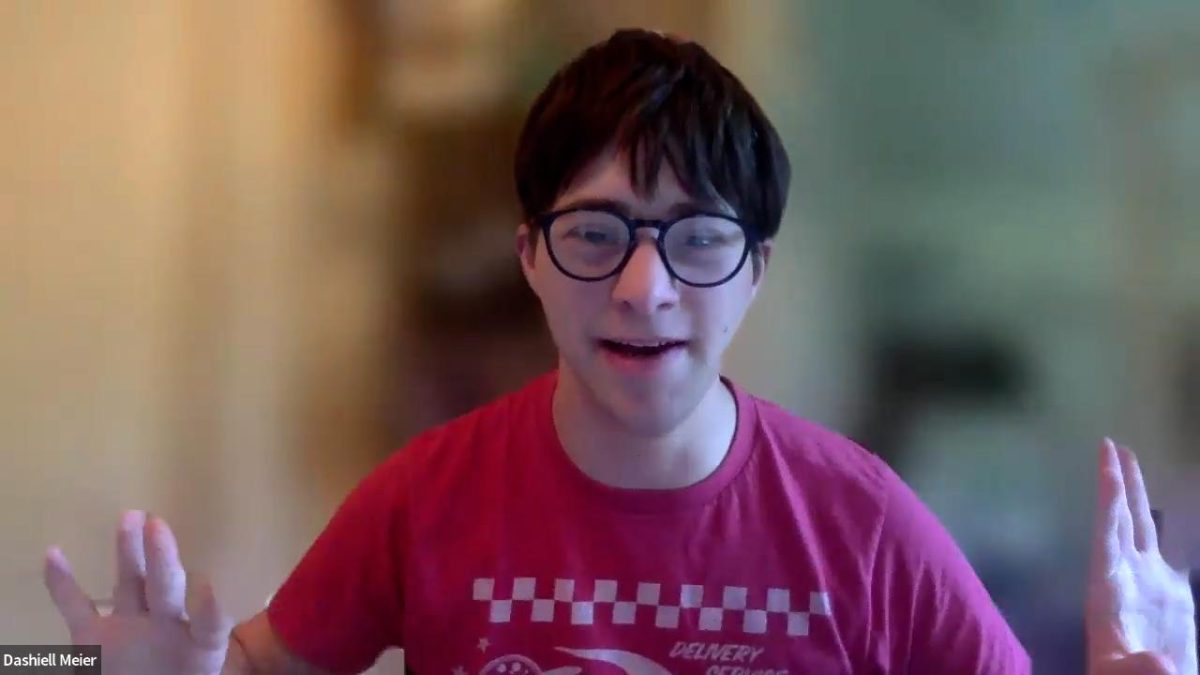Dashiell Meier is a 19-year-old filmmaker, disability advocate and student at Foothill College. He is a National Down Syndrome Society Ambassador and a Special Olympics multi-sport athlete, Health Messenger and Global Ambassador.
This is a direct transcription from Dashiell’s “How Do You See Me?” video (19:48 – 21:14):
“This is the disability pride flag. The black field represents the suffering of the disability community of illness, negligence, police brutality, suicide and eugenics. It also represents rebellion and protest because we are fighting back! The lightning bolt shape represents the zig zagging that people with disabilities do to navigate an inaccessible world.
The colors represent five types of disabilities. Blue stands for mental illnesses, yellow is for cognitive disabilities like myself. White represents invisible and undiagnosed. Red is for physical disabilities and green stands for sensory disabilities. Just by listening to this presentation, you know more than most people about Down Syndrome and ableism. It is often harder for people with disabilities to communicate and share our message. We are counting on our allies.”
 The above flag is a modified flag based on feedback from people with visual disabilities. For a full history please read here. Following is the conversation Cindy Hart had with Dashiell:
The above flag is a modified flag based on feedback from people with visual disabilities. For a full history please read here. Following is the conversation Cindy Hart had with Dashiell:
“Cindy Hart: How can we encourage more cities to be aware of the disabled movement and to treat disability pride month (July) the same as gay pride month (June)?
Dashiell Meier: We need more people with disabilities to make people aware especially governments by writing letters to newspapers, posting on social media, and putting themselves in film because if we watch movies today, films paint people with disabilities in a negative manner for example Star Wars with Emperor Palpatine (everyone knows that character) he’s deformed and that’s a disability de trop and that tells us that people who are deformed are evil but that’s not true.
Cindy Hart: I looked up Down Syndrome on Wikipedia and I was not happy with what it said. – Reference https://en.wikipedia.org/wiki/Down_syndrome Should I write to them and say I don’t think this is positive or balanced?
Dashiell Meier: I would say the first thing everyone should see when they go to that page is an acknowledgment that there are stereotypes about disability. People need to get more involved (learn about Down Syndrome) to understand they do not need to fear people with down syndrome and disabilities because we are different. People should recognize that there are people like me who are proud of our disability because it’s a part of who we are.
Cindy Hart: What actions from other people cause you to feel really angry about something you care about a lot?
Dashiell Meier: Stereotyping. These stereotypes lower our self-esteem and are there to tell people that people with down syndrome are scary, people should be afraid of them, and we are not being seen as real people.
What makes me really angry about these stereotypes is that they paint us as if we’re the bad guys and we are not. We’re just people within the community trying to live our best lives and if other people see us (only) one way that view is very narrow. We are trying to open up other people’s lenses to see us as themselves. What I mean is seeing people with disabilities as a part of a community.
Cindy Hart: What support will you need when you decide to live independently?
Dashiell Meier: (The concept of) money and time related stuff is like a foreign language to me. Sometimes I confuse lunch with dinner and vice versa. I’m not conserved. I do group supported decision-making and that’s helpful. I have a team which is right now mostly my family members and some professionals, and I feel very confident in them.”
Aside from the insights Dashiell provided in his interview, I hope that people promote the celebration and acknowledgment of these three important dates occurring in March, July and October:
March 21st – World Down Syndrome Day (Declared by the United Nations since 2012).
July – Disability Pride Month: Celebrates the achievements and contributions of people with disabilities and promotes disability rights.
October – Down Syndrome Awareness Month: Promotes awareness and acceptance of individuals with Down syndrome.
Dashiell Meier is very active in promoting civil rights for people with disabilities and in creative ventures. In our interview he let me know that he is working on his very first novel called Darwin Troy which will be a book series involving a person with cerebral palsy. He is also a regular guest speaker at two Stanford classes – PSYC 235: Dement’s Sleep and Dreams and CS 377Q: Designing for Accessibility.
Two current civil right issues Dashiell is involved with are HR 7055 and SB 639.
H.R.7055 – EMPSA Act would eliminate this marriage penalty for people with intellectual and developmental disabilities.
Over 5,000 Californians with disabilities are currently working in sheltered workshops and are being paid as little as 15 cents an hour. SB 639 develops a plan to transition these workers into decent-paying jobs and provides individualized support during this transition. Californians in support of SB 639 can send a letter of support to the Senate Human Services Committee members.
You can catch up with Meier on his website, as well as his YouTube page and his aforementioned video How Do You See Me?.





















































































